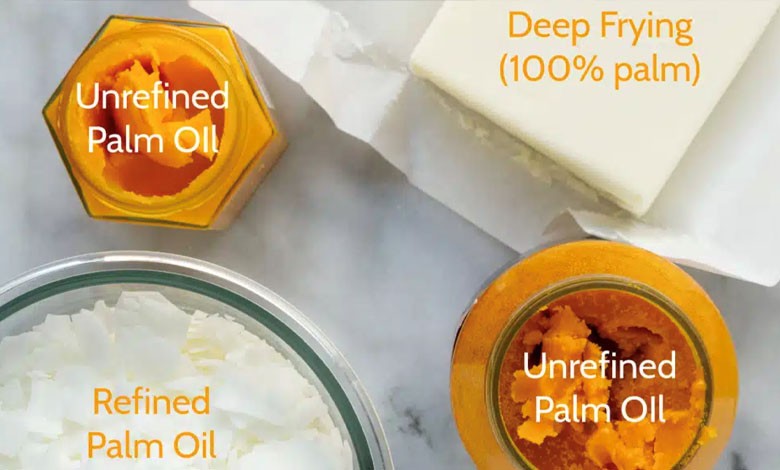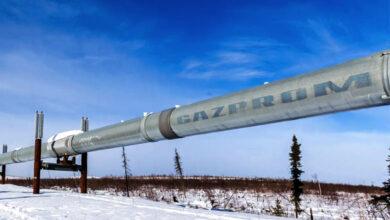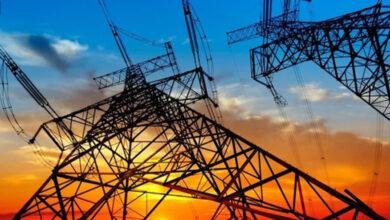Законопроект No5148: почему пальмовое масло не запрещено и что требуется от производителей сладостей, детского питания и молочной продукции

ИА»ФАКТ» уже сообщало, что в ноябре Президент Владимир Зеленский утвердил законопроект №5148, призванный повысить стандарты качества продуктов питания. В инфополе этот закон бытует как запрещающий использование пальмового масла в сладости, детском питании и молочных продуктах. Однако это так только наполовину: прямого запрета на пальмовое масло в документе нет. Итак, какие именно ограничения введены, и каких последствий ожидать производителям?
Почему пальмовое масло так популярно
Откуда вообще вокруг пальмового масла такой ажиотаж? Популярность продукта как такового оправдана. Это растительный жир из плодов масличной пальмы. Масло ценят в пищевой промышленности, потому что оно стабильное, многофункциональное и часто используется без дополнительной обработки. Известность ингредиента в пищевой промышленности объясняется тем, что пальмовое масло является очень продуктивной культурой. С одного гектара можно получить гораздо больше масла, чем из других масличных культур, – того же подсолнечника или рапса.
Во-вторых, пальмовое масло в зависимости от обработки может быть как редким, так и твердым: это делает его пригодным для различных продуктов — от печенья до маргарина. В жидкой части более половины составляют насыщенные жирные кислоты, чуть меньшая доля мононенасыщенных, а остальные – полиненасыщенные. Важно, что в олеине нет вредных трансжиров.
В-третьих, она устойчива к окислению, что продлевает срок хранения продуктов. Далее этот чудо-ингредиент не изменяет вкус, запах или цвет продуктов, что делает ее незаменимой для использования во многих рецептах. Наконец высокая температура дымления делает ее идеальной для жарки и приготовления пищи при высоких температурах.
«Вредным» продукт делает гидрогенизация — процесс, во время которого жидкие жиры превращают в твердые, добавляя водород. Так поступают, например, с подсолнечным или соевым маслом, чтобы получить жир с нужной текстурой для выпечки или кремов. Именно этот процесс может образовывать трансжиры, вредные для здоровья. Они скапливаются в организме, нарушают обмен веществ и могут вызвать проблемы с сосудами. Поэтому во многих странах ограничивают использование трансжиров в продуктах.
Как легитимность пальмового масла дискутировалась в отечественном политикуме
Попытки ограничить или запретить пальмовое масло в Украине продолжаются уже 11 лет с легкой руки автора законопроекта – Виктора Балоги. Однако документ был отправлен на редактирование, после чего идея на несколько лет исчезла из повестки дня. Позже тему актуализировал одиозный Олег Ляшко, активно выступавший за поддержку украинских молочных производителей и заявлявший, что пальмовое масло вредит и отрасли, и здоровью нации. Его законопроект дошел в Верховной Раде только до первого чтения.
Дискуссию реанимировали в 2021 году законопроекте №5148. Авторы снова отмечали риски для здоровья, которые, по их мнению, несет пальмовое масло, особенно в детских продуктах. Но в сентябре, когда законопроект прошел первое чтение, стало известно, что он направлен не на запрещение самого масла, а на гидрогенизированные растительные масла, к которым оно может относиться. Это важно, потому что гидрогенизированные масла – это переработанный продукт с другими свойствами, чем обычное пальмовое масло.
Трансжиры — молекулы-уроды
В СМИ распространилась информация о том, что в Украине якобы запретили использование пальмового масла. Однако, если обратиться в текст закона, понятно, что под ограничения попадают гидрогенизированные жиры, из которых образуются трансжиры.
Согласно авторитетному исследованию, трансжирные кислоты — «тип жирных кислот, которые либо встречаются в природе, либо могут быть промышленно произведены в коммерческих количествах посредством процесса, известного как гидрогенизация. Гидрогенизация предполагает обработку жиров и масел газообразным водородом в присутствии катализатора, что приводит к селективному присоединению водорода к двойным связям углерод-углерод”.
В пищевой промышленности трансжирные кислоты появляются вследствие частичной гидрогенизации растительных масел. В этом процессе естественные цис-ненасыщенные двойные связи активно превращаются в транс-ненасыщенные. Благодаря этому трансжиры придают продуктам необходимые физические и химические свойства, которые так ценят производители. Однако употребление частично гидрогенизированных масел коррелирует с ростом риска сердечно-сосудистых заболеваний, бесплодия, эндометриоза, желчнокаменной болезни, диабета, болезни Альцгеймера и отдельных видов рака.
Следует отметить, что пальмовое масло широко используется в пищевой промышленности без необходимости прохождения гидрирования, во время которого часть цис-двойных связей трансформируется в транс-конфигурацию и становится вредной для здоровья. Это означает, что пальмовое масло как таковое лишено транс-ненасыщенных изомеров жирных кислот. Более того, исследования показали, что при потреблении пальмового масла внутри диеты с низким содержанием жиров она поддерживает оптимальный уровень холестерина и липопротеинов в крови.
Что именно отстаивается в законопроекте №5148
Согласно новому закону, в пищевых продуктах удельный вес крамольного компонента не должен превышать 2 г трансжирных кислот на каждые 100 граммов общего количества жиров. В рецептуре традиционной «молочки» не должно быть растительных жиров и растительных масел, а также белков и жиров, не имеющих молочного происхождения. Кроме того, табуировано применение консервантов или стабилизаторов.
В свою очередь, в производстве продуктов для детей запрещено применение гидрогенизированных масличных компонентов, твердых фракций пальмового масла и других подобных компонентов. отмечено.
Украина мощна производителем масло из рапса, подсолнечника и сои, а технология гидрогенизации широко используется в мире для изменения консистенции масла, прежде всего, его загущения. Однако все больше компаний переходят на альтернативные методы – частичную гидрогенизацию и переэтерификацию, позволяющую получать жиры с желаемым составом.
Когда в 2021 году в Евросоюзе было ограничено содержание трансжиров промышленного происхождения (до 2%), украинские кондитерские компании также начали имплементировать аналогичные стандарты, адаптируя под них свои производственные процессы. В частности, крупнейшие переработчики пальмового масла в Украине — Дельта Вилмар Украина, Щедро и Капро Оил — внедряют современные технологии.
Такие изменения ужесточили конкурентоспособность украинских производителей на Западе. Кроме того, такая стратегия вписывается в глобальный мейнстрим на здоровое питание. Компании начали изобретать альтернативы, переходя на более натуральные жиры и растительные масла. Так, в производстве пряников, сушек и соломки маргарин заменили дезодорированным подсолнечным маслом. Для хлебобулочных изделий теперь используют маргарин с меньшим содержанием глицидола.
Трансжиры часто используются для удешевления продуктов. Так, молочный жир стоит около 300 грн за килограмм, тогда как трансжиры – вдвое меньше. Благодаря этой разнице производители могут получать дополнительную маржу, предлагая более дешевые кондитерские изделия. Но потребителям следует помнить, что низкая цена таких продуктов часто говорит об использовании менее качественных ингредиентов.
В молокосодержащих продуктах – сметане, масле, сыром или мороженом – обычно применяют не само пальмовое масло, а его олеиновую фракцию. Пока половина мороженого отечественного производства содержит заменители молочного жира. Однако в продуктах с низкой жирностью – молоке, кефире, ряженке или йогурте – пальмовое масло или его производные не используются. К счастью, добавление заменителей в эти категории продуктов не приносит переработчикам финансовой выгоды.
Следует отметить, что большинство украинских молочников почти не применяют растительные заменители жиров в своей продукции, предназначенной для внутреннего потребления. Основное использование таких ингредиентов приходится на экспортную продукцию. Причина проста – высокая конкуренция на этих рынках заставляет снижать цену продуктов, а это возможно благодаря использованию суррогатных ингредиентов молочных жиров.
Аналогичный подход практикуют и европейские производители, использующие растительные жиры для удешевления экспортируемой продукции в страны с низкой покупательной способностью.
Что касается маркировки продукции, то большинство производителей уже соблюдали правила и четко указывали склад своих товаров еще до принятия нового закона. Однако пятая часть рынка остается в тени, где требования к маркировке часто игнорируются.
Татьяна Викторова





